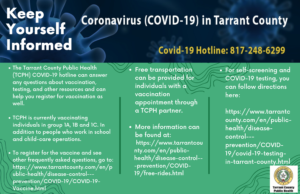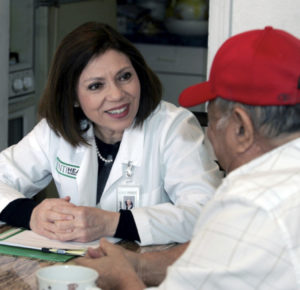NorTex 2021 Spring Newsletter
March 29, 2021 • NorTex
THE NORTEX NEWSLETTER
Reducing Disparities by Creating a Harmonized Electronic Healthcare Records Database Across Institutions
There is a transformational shift in healthcare in terms of new payment models, performance evaluation, requirement of electronic health records, and emphasis on patient-centered and evidence-based patient care. As of 2017, 9 in 10 hospitals and nearly 9 in 10 office-based physicians have adopted a government certified EHR. With these shifts, Health Services and Outcomes Research (HSOR) using electronic health records has become vital to population health management. Access to integrated data is critical in understanding gaps in receipt of evidence-based care; over-use of healthcare services that are not evidence-based; and unwarranted use of expensive healthcare services, structure (such as care coordination), and processes that need to be continuously improved. Secondary data can assist practitioners in patient care by providing a “360-degree” view of patients’ healthcare and “actionable intelligence” to take specific actions to improve population health. Indeed, use of health analytics involving large databases has shown improvements in increased adherence to guideline-based care, enhanced surveillance and monitoring, and decreased medication errors. NorTex has built strong relationships with community partners throughout North Texas, and members of our advisory boards have consistently emphasized the need for collaboration to reduce health disparities in our communities. The first step towards this combined effort is building an integrated database across partner
institutions; however, differences in EHR systems deter this effort. Therefore, there is a need to develop an algorithm for a harmonized database using EHR data across multiple platforms. With this goal in mind, researchers from NorTex (site lead: K Fulda), the UNT Health Science Center System College of Pharmacy (site lead: U Sambamoorthi), UT Southwestern Medical Center (UTSW) (site lead: D Schneider), and John Peter Smith Health Network (JPS) (site lead: M Acosta) are collaborating to develop an integrated database across these partner institutions. The goal of our project is to reduce healthcare disparities by using a data-driven research approach by:
- Collaborating with established NorTex partners throughout north central Texas to develop algorithms for a harmonized database of EHR data, and
- Applying these algorithms to extract social determinants of health and clinical factors from diverse EHR systems.
Collaboration between these institutions will allow us to approach understanding and reducing health disparities across the metroplex using innovative methods that one institution cannot do alone.
NORTEX RESEARCH PROJECTS
FEATURED CURRENT NORTEX PROJECT
PROMIS Learning Lab COVID Supplement: Grant Approved
Researchers from NorTex at HSC, the University of Texas at Arlington, John Peter Smith Health Network, and Johns Hopkins University have been working together as the PROMIS Learning Lab since the fall of 2019. The Partnership in Resilience for Medication Safety, or PROMIS, Learning Lab aims to improve medication safety in the primary care outpatient setting. With the onset of the COVID-19 pandemic, the entire healthcare system has dramatically changed resulting in adaptations in medication safety in primary care due to social distancing. The PROMIS Learning Lab recognized this newfound gap in medication safety and received a supplemental grant funded by the Agency for Healthcare Research and Quality (AHRQ). This one year grant started in January 2021 with the goal of accomplishing the following aims:
- Characterizing disruptions and adaptations due to COVID-19 in primary care delivery
- Assessing barriers and facilitators in primary care delivery due to COVID-19
- Evaluating patient engagement using telehealth visit modalities
- Developing guidelines to primary care clinics via expert panels and simulation modeling of different scheduling practices
Main study activities of the supplement include analysis of electronic health record (EHR) primary care access patterns before and during COVID-19, medical records chart reviews, 1-on-1 post-visit surveys for both telehealth and in-person visits, interviews and observations, and simulation of different scheduling practices. PI: Yan Xiao, PhD, UTA; Funded by AHRQ
FEATURED COMPLETED NORTEX PROJECT
Perceptions of Pregnant Medical Students’ Ability
Medical school curriculum is very rigorous, and many students face challenges in life while struggling to keep up with their studies. Pregnancy is one potential challenge during medical school, and there is a lack of research on the relationship between pregnancy and medical school performance. The purpose of this study was to examine perceived change in ability in medical school due to pregnancy and the differences in perception between those who have and have not been pregnant in medical school. A survey was distributed to medical students attending UNTHSC Texas College of Osteopathic Medicine, and 150 responses were collected. Of the 150 respondents, 102 (68%) were female, and only 8 (5.3%) respondents had ever been pregnant while attending medical school. Descriptive statistics were used to compare and analyze responses between the two sample populations. Students that had never been pregnant during medical school were more likely to rate perceived change in academic ability as ‘decreased’ (n=63, 51.6%) or ‘greatly decreased’ (n=33, 27.0%) while students who had been pregnant reported ‘decreased’ (n=4, 50.0%) or ‘no change’ (n=4, 50.0%) in ability. Students who had been pregnant in medical school (n=4, 50%) rated support services higher than their counterparts (n=27, 22.1%). The results of this study suggest that students who had never experienced pregnancy in medical school perceived a greater decrease in academic ability than those who had.
A survey was distributed to medical students attending UNTHSC Texas College of Osteopathic Medicine, and 150 responses were collected. Of the 150 respondents, 102 (68%) were female, and only 8 (5.3%) respondents had ever been pregnant while attending medical school. Descriptive statistics were used to compare and analyze responses between the two sample populations. Students that had never been pregnant during medical school were more likely to rate perceived change in academic ability as ‘decreased’ (n=63, 51.6%) or ‘greatly decreased’ (n=33, 27.0%) while students who had been pregnant reported ‘decreased’ (n=4, 50.0%) or ‘no change’ (n=4, 50.0%) in ability. Students who had been pregnant in medical school (n=4, 50%) rated support services higher than their counterparts (n=27, 22.1%). The results of this study suggest that students who had never experienced pregnancy in medical school perceived a greater decrease in academic ability than those who had.
This project was developed and led by two TCOM students: Andi Toufexis and Emma Tierney.
 SIGN UP HERE!
SIGN UP HERE!
- to be contacted for future studies
- must be 18 years or older
unthsc.edu/research/nortex
FEATURED MEMBER:
DR. FRANK FILIPETTO
Frank Filipetto, DO, is the Dean of the Texas College of Osteopathic Medicine (TCOM) at the University of North Texas Health Science center (HSC). Board Certified in Family Practice by the American Osteopathic Board of Family Physicians, Dr. Filipetto’s academic contributions have been recognized for his nearly 30 years of work in the field of family medicine. Dr. Filipetto earned his degree in osteopathic medicine from the Philadelphia College of Osteopathic Medicine. He completed his residency training in family medicine at the University of Medicine and Dentistry of New Jersey (UMDNJ). Prior to joining HSC, he spent nearly 20 years at UMDNJ School of Osteopathic Medicine, in several academic leadership roles including Residency Director and Vice/Acting Chairman of Family Medicine. In 2007, he was named a UMDNJ Master Educator, the highest teaching recognition awarded by the University, for his contributions to medical education.
Dr. Filipetto joined HSC in 2011 as Chairman of TCOM’s Department of Family Medicine and in 2014 became the Senior Associate Dean for Academic Affairs, where he currently holds the appointment of Everett Endowed Professor. In 2017, he was named Interim Dean of TCOM, and in 2019 Dr. Filipetto became the Dean of TCOM. As Dean, Dr. Filipetto’s main objective is to work with faculty and students to develop innovative strategies to provide the students with the skillset to change the way health care is delivered. He wants medical education to emphasize its focus and resources towards health system science, which includes areas of health care policy, patient safety, professionalism, innovation, IPE, and population health, all working together to reform the delivery of health care. While committed to academics, Dr. Filipetto practices medicine intermittently as a faculty member and preceptor in the family medicine residency program here at HSC. He is a member of the American Osteopathic Association, Texas Osteopathic Medical Association and the American College of Osteopathic Family Physicians, of which he served as Chair of the Osteopathic Clinical Research Committee.
Dr. Filipetto also serves as a member of the NorTex Advisory Board. Dr. Filipetto is an avid outdoorsman. He enjoys hunting and fly-fishing. Cruising on his motorcycle on the weekends is his way of relaxing, along with spending quality time with his wife, two daughters, and his newly rescued Saint Bernard, Enzo.




Social media